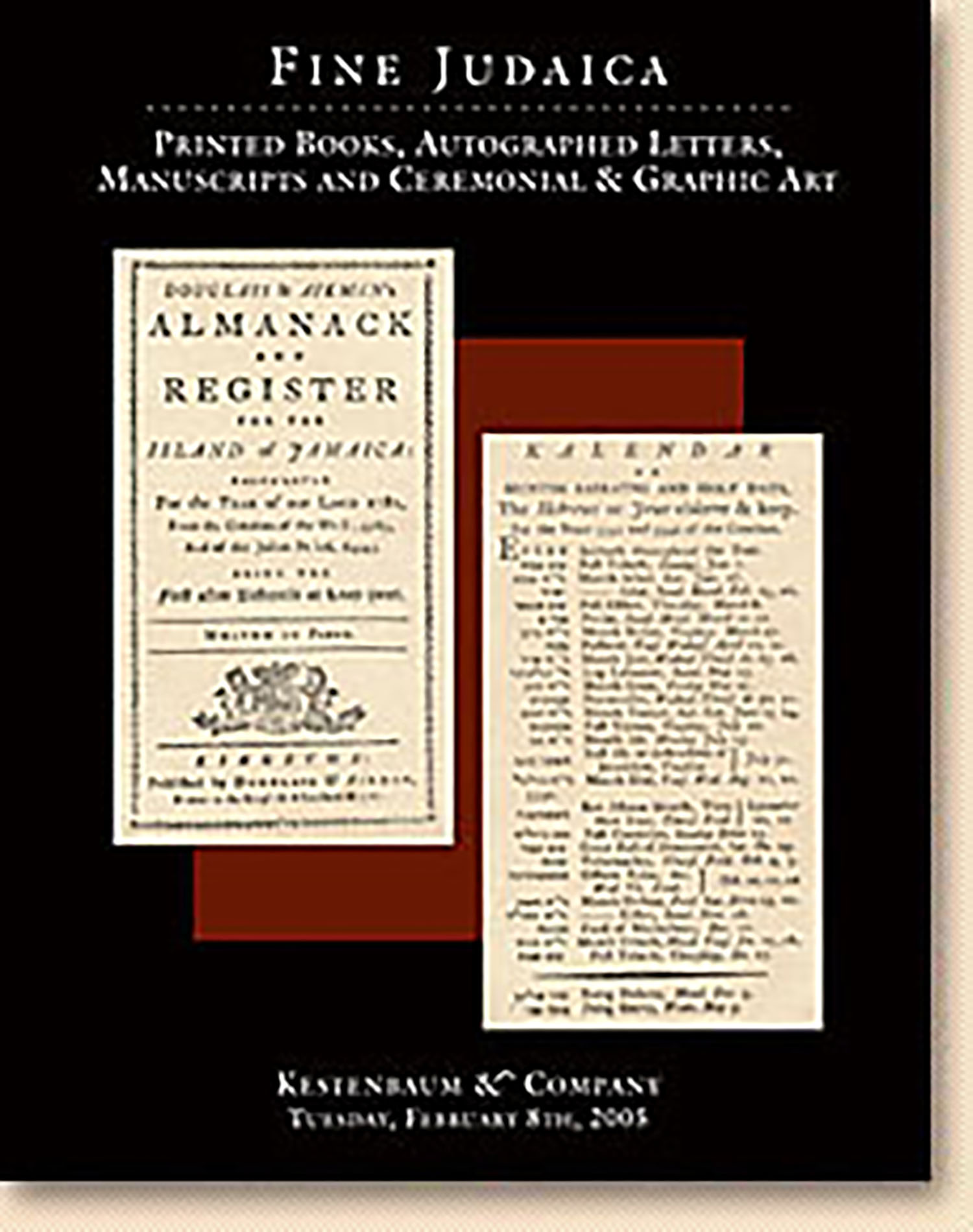ALMOSNINO, MOSES. Extremos y Grandezas de Constantinopla. [“The Heights and Grandeur of Constantinople”]. Translated from Ladino by Jacob Cansino

AUCTION 27 |
Tuesday, February 08th,
2005 at 1:00
Fine Judaica: Printed Books, Autographed Letters, Manuscripts, Ceremonial & Graphic Art
Lot 200
(SEPHARDIC LITERATURE)
ALMOSNINO, MOSES. Extremos y Grandezas de Constantinopla. [“The Heights and Grandeur of Constantinople”]. Translated from Ladino by Jacob Cansino
Madrid: Francisco Martinez 1638
Est: $4,000 - $6,000
PRICE REALIZED $13,000
"One of the rarest works of Spanish Jewish literature and an important historical source" (EJ, Vol. II, col. 670).
Born in Salonika, Moses Almosnino hailed from a distinguished Jewish family originally from the Spanish town of Aragon. He was renowned for his knowledge of rabbinical matters and for his scholarship in the sciences, particularly natural physics and astronomy, he also served as Rabbi of the community of Spanish exiles in Constantinople. In 1565, he formed a delegation to petition Sultan Selim II for a confirmation of the privileges previously granted to the Salonika Jews in 1537. His efforts procured a favorable decision and in 1568 the Salonika community were granted the status of a self-governing entity, a prerogative it enjoyed for centuries thereafter.
The present rare work is a description of Constantinople, published, with some rearrangement and omissions, in Spanish by Jacob Cansino of Oran (d. 1666). The peface to the book enumerates the positions held and the services rendered by the Cansinos, a distinguished North African family of royal interpreters that originated in Seville.
According to Sanchez, "Esta obra se puede considerar por una de las mas raras de la lengua castellana" (Kayserling, Biblioteca Española-Portugueza-Judaica, p. 10-11).
